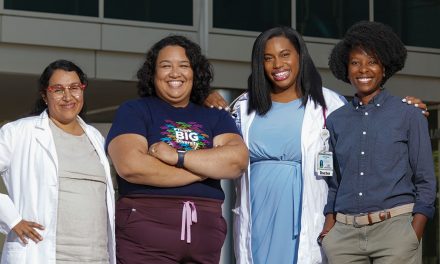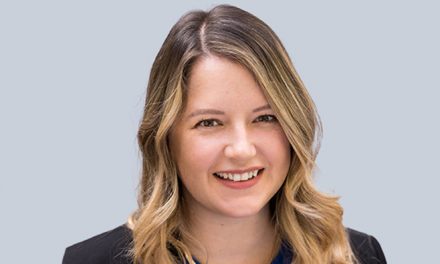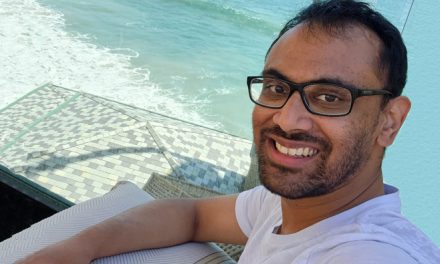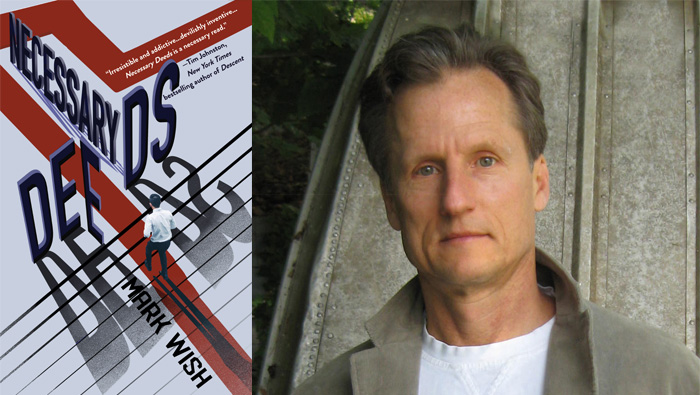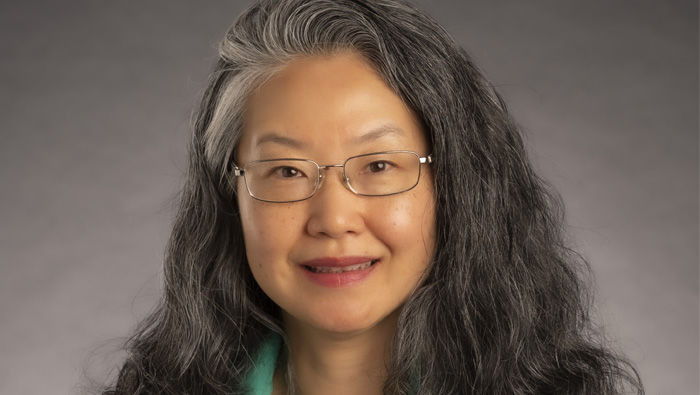
A Personal Choice
Angie N. Choi, Cred. ’94, shares her cancer journey — combining traditional and alternative medicine — in a new book, Whole New Me: Healing From Cancer in Body, Mind, and Spirit (Kosmos Publications, 2023).
Almost two years ago, Choi was diagnosed with early-stage ovarian cancer and underwent a full hysterectomy. Her doctor recommended six rounds of chemotherapy to complete her treatment. Choi, who has studied Eastern and Western ideas of consciousness and the mind, chose a different path.
“At first I thought I was going to do the chemo infusions, but I was in such a deep mindspace if you will,” she said. “But every morning in the very early hours I was getting into very quiet and still spaces. And that’s when my intuition would actually arise and kind of talk to me. It told me I didn’t need the chemo. And that’s what actually motivated me to start researching for other ways besides chemo.”
She sought answers from research by Thomas Seyfried, a professor of biology, genetics and biochemistry at Boston College and a proponent of the metabolic approach to cancer. This approach posits that cancer cells cannot be fueled if you take away their source: glucose and glutamine. Choi adopted the approach by modifying her diet and adding certain medications.
Here, Choi, a former English teacher who is now the director of admissions at University of Arkansas for Medical Sciences, shares more of her experience and writing.
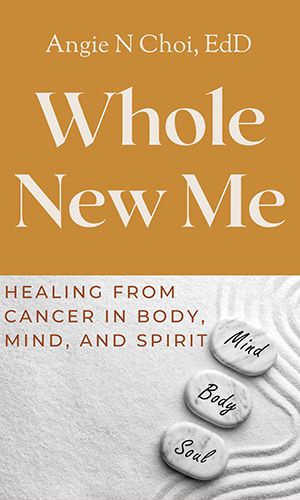
What made you want to write this book and share some of your personal experiences?
What really motivated me was that I just don’t think the metabolic approach to cancer is very well known. I thought if anyone else is going through a cancer diagnosis — and you know how it’s kind of comes in and bulldozes your life — I want them to know about this potential treatment.
And then the other reason is because I truly believe that healing has many layers. I don’t think it’s just physical; I think it’s psychological, emotional, mental, spiritual. To me, it’s more optimal if it’s a more integrated full being type of approach to your own healing, rather than just looking at it just at the physical level or just the mental level or whatever.
When you adopted the ketogenic diet, what would a meal look like for you?
I would probably fry salmon in a pan and cook it in butter, like real butter from grass-fed, pasture-raised cows. Then I would have an avocado along with that. I would have some macadamia nuts. Some people can’t handle nuts, so you can adjust as needed. I’d have some kale or any broccoli or cauliflower or bok choy. I might even have a little shot of olive oil.
In the beginning you might not even have any fruit at all or just a few berries. But if you stay on a therapeutic ketogenic diet, the longer you go on, you can have a little bit. But then if you can transition off that diet and just have a low-carb diet, then you can have more fruit and start incorporating a few more carbs into your diet like what I’m doing now.
How has this worked for you?
My [cancer] numbers kept plummeting, and they stayed low. A scan five months later showed there was no evidence of disease. I’m now almost two years out and as a cancer survivor. I keep monitoring my labs, my numbers every six months. So it worked well for me.
What was it like to revisit this experience by writing the book?
It was a very therapeutic process. I had lost a lot of joy in my life, and one of the things that really brought joy to my life was writing. I had done a lot more of it when I was younger, but life happened, and I had really gotten away from that.
But the other larger purpose is that I think that we are all these whole beings, right? The more we integrate those aspects of ourselves, the more healed we will be. And ultimately you gain a lot of awareness from any process of integration, whether it’s instigated by a disease or trauma or whatever. But I think that when you become more whole, your awareness also increases.
How did you come to that conclusion that this experience was positive for you?
Because to me, healing is about increasing your awareness at the spiritual level, at the emotional level, and at the mental level. I really had to advocate for myself with the cancer treatment that I was doing. My oncologist wasn’t trying to stop me, but really didn’t agree with it. She tried convincing me of the conventional standard health treatment. As wonderful as they are, they will not understand if you do an approach that they do not recommend.
With that self-advocacy, you really become more empowered because it’s like, “No, this is what I really believe I need to be doing.”
This interview has been edited for length and clarity.

